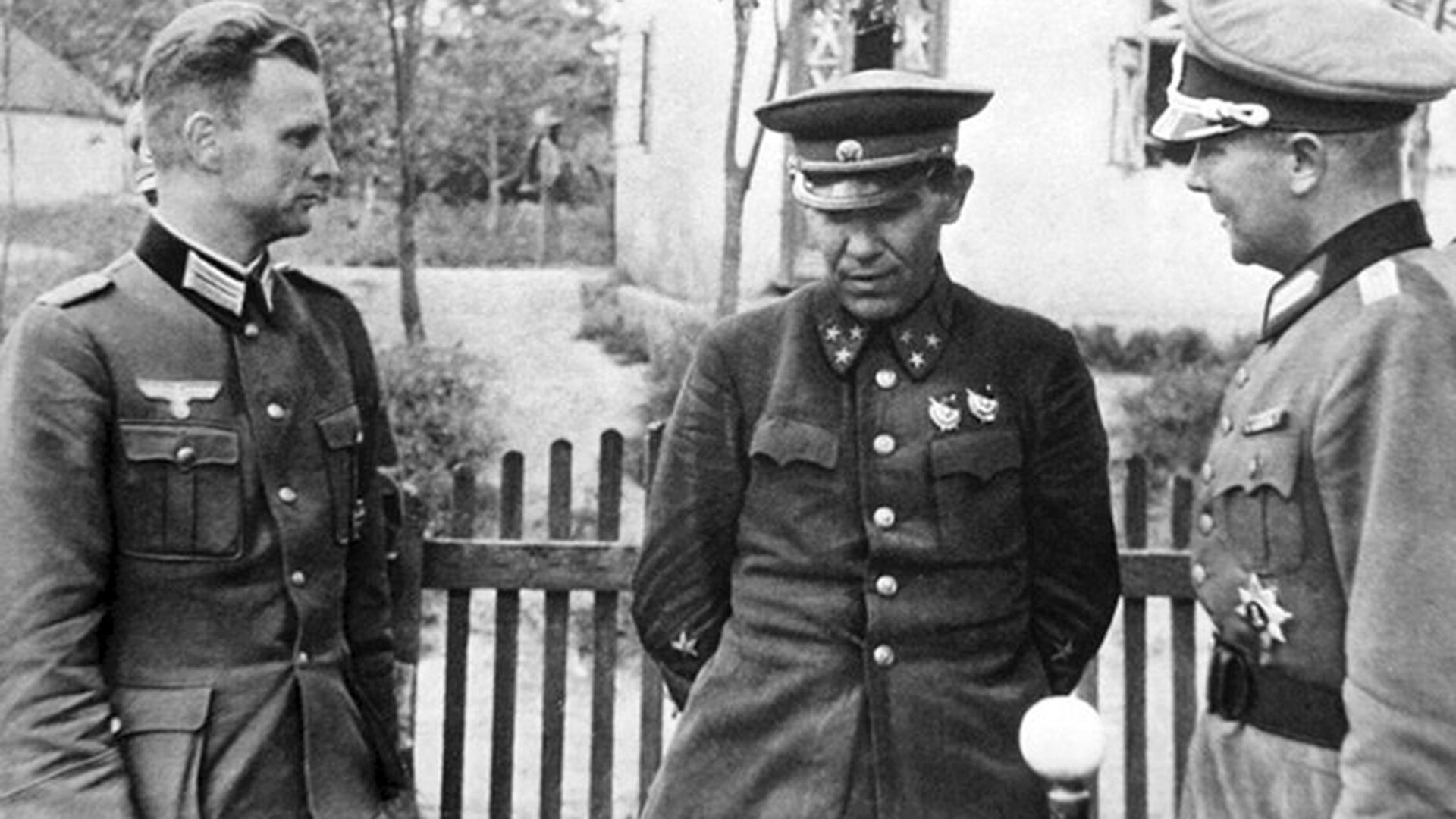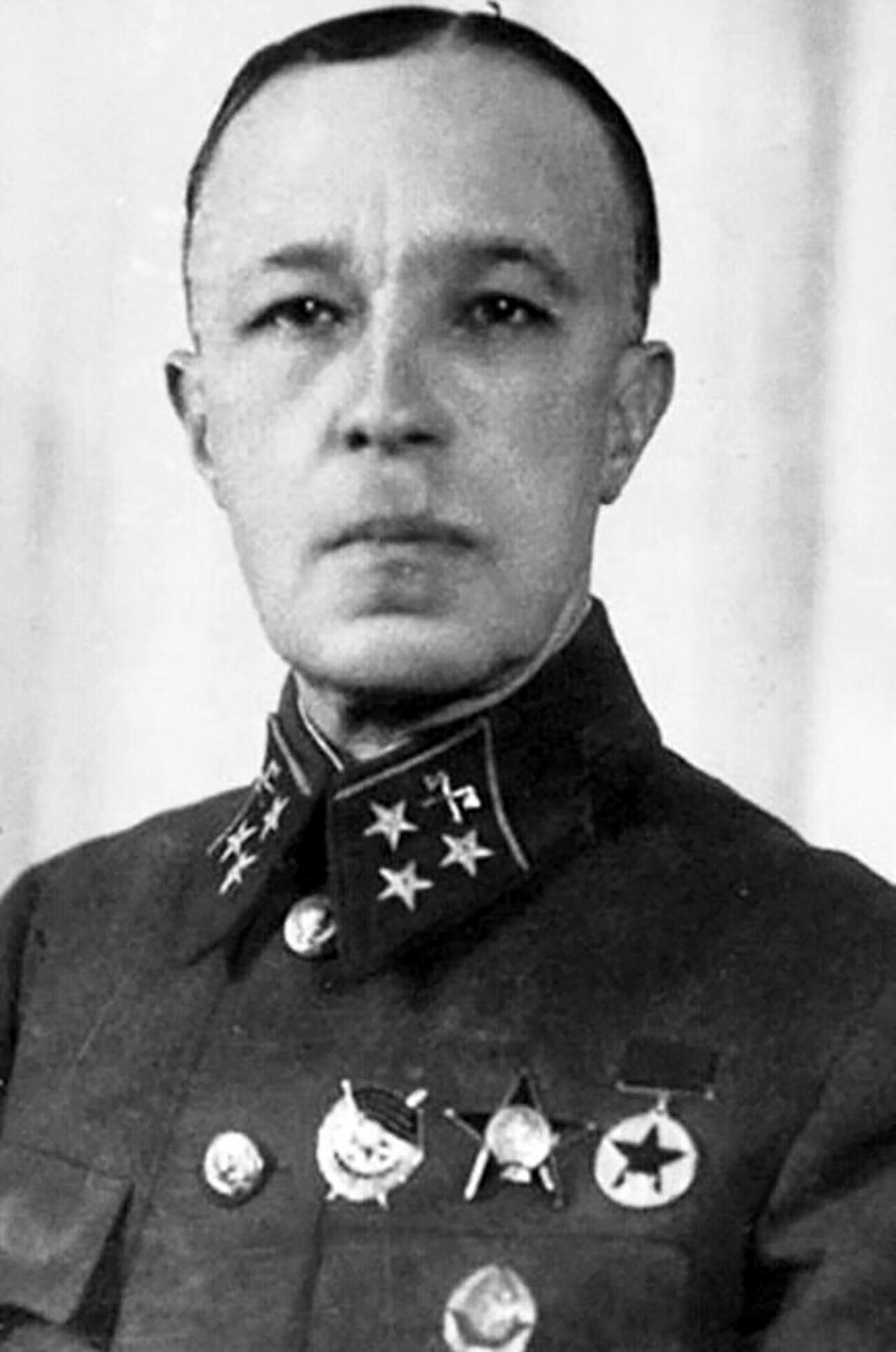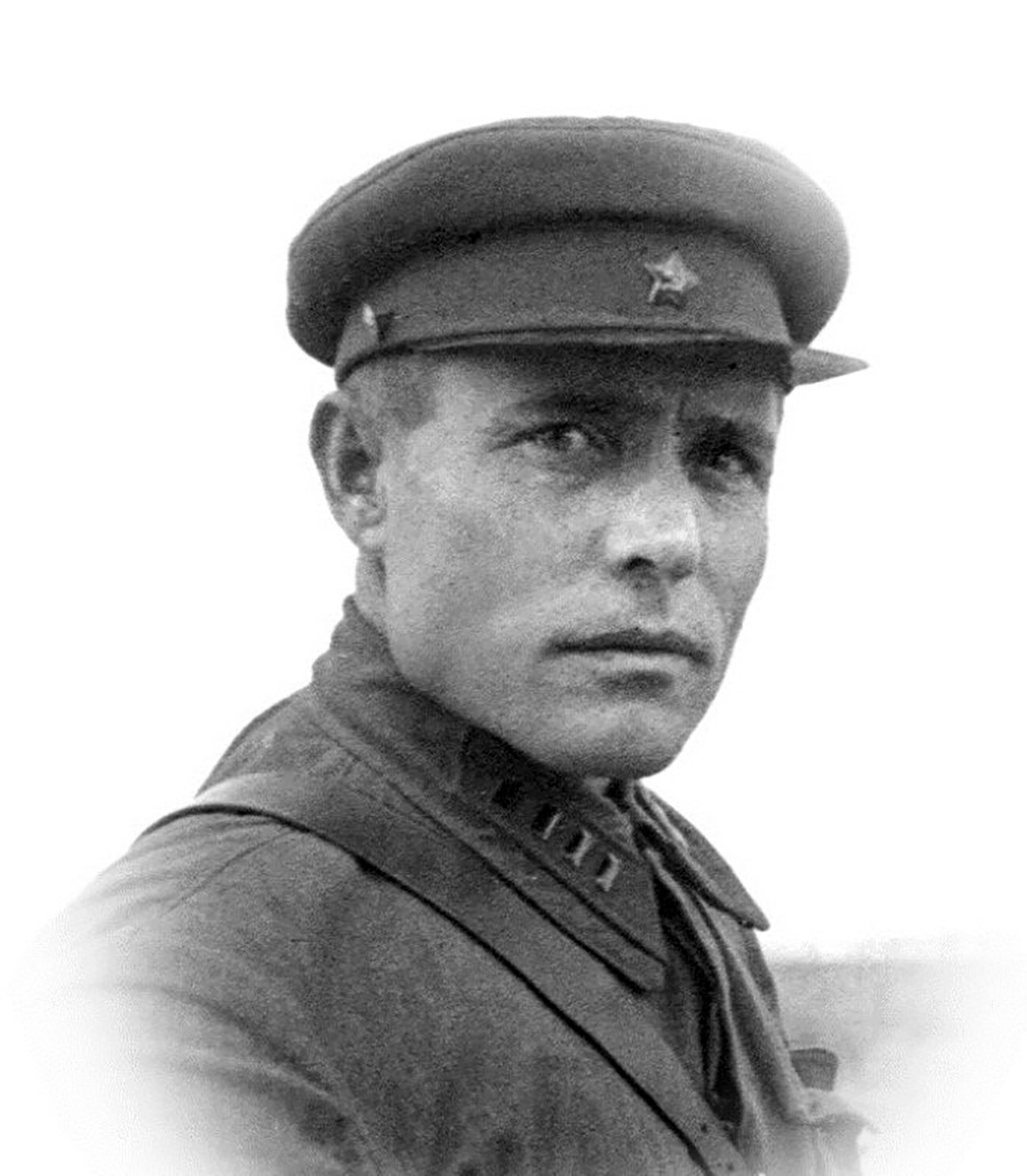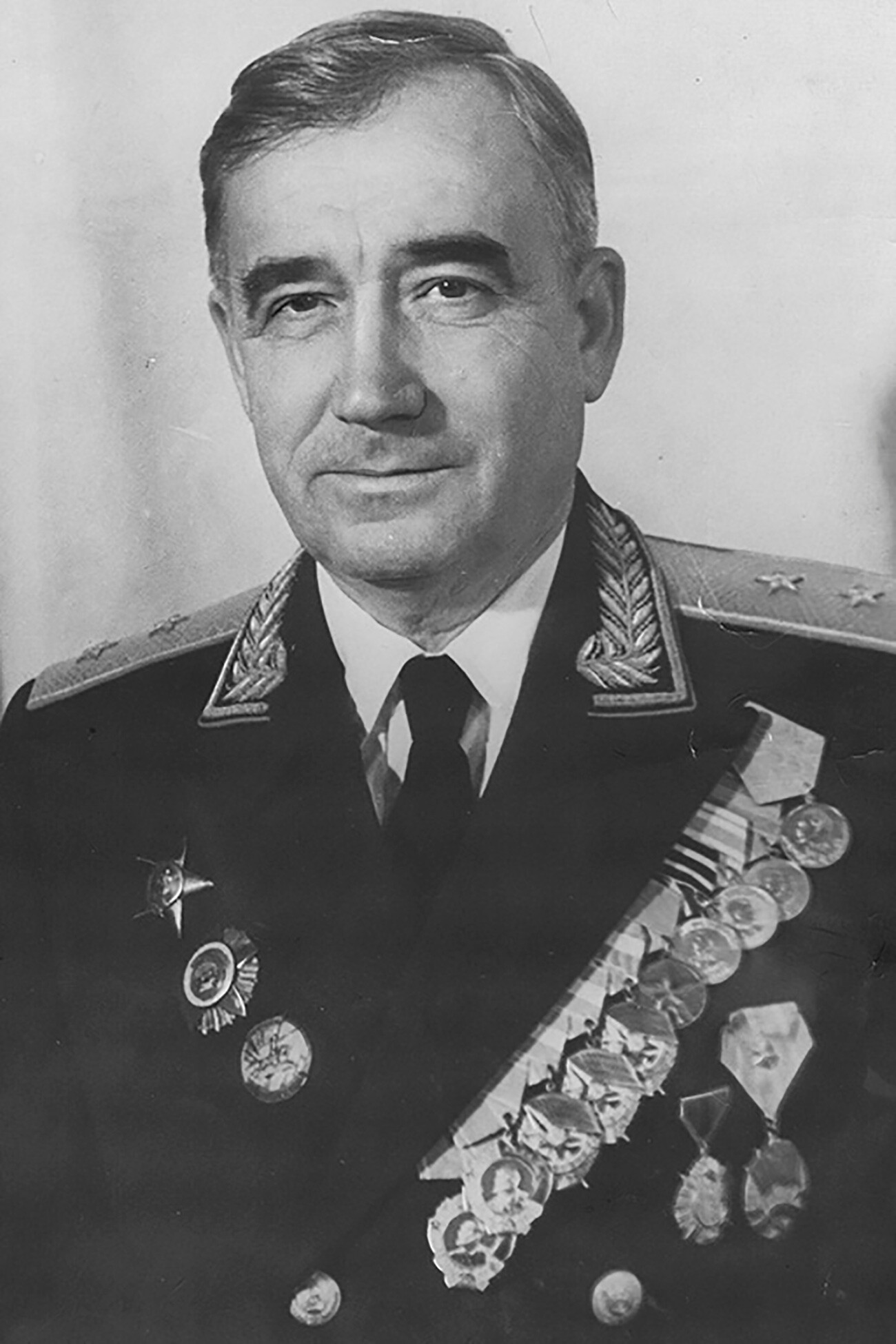
General Ivan Muzychenko in German captivity.
Archive photoThe Germans tried to persuade a number of captured Soviet military leaders to join them with promises or through torture. Only a handful, however, agreed to cooperate with the enemy, while the majority remained loyal to their oath.

Lt-Gen of the Engineer Corps Dmitry Karbyshev was one of the most valued officers in the Red Army. He was an excellent fortifications expert and his numerous research papers were used for the training of command personnel at military colleges.
Karbyshev was taken prisoner by the Germans on Byelorussian territory in August 1941. The Germans offered to release the general from prison camp and to provide him with his own lodgings and the opportunity to conduct research work in the interests of the Third Reich, with unhindered access to archives and libraries – and with several personal assistants thrown in, as well.
However, the commander flatly refused. Even when the Nazis switched from promises to threats and worsened the conditions under which he was confined, he did not relent.
"This major Soviet expert on fortifications, a career officer of the old Russian army, a man who was over 60 years old, turned out to be fanatically devoted to the idea of loyalty to military duty and patriotism…" a 1943 German report said. "Karbyshev can be considered hopeless in the sense of being used as a military engineering specialist."
The elderly general was made to do hard labor and was moved from one camp to another. On February 18, 1945, he died at Mauthausen concentration camp after he was doused with water and left to perish in the frost.

Commander of the 109th Rifle Division Maj-Gen Pyotr Novikov was in charge of the defense of Sevastopol in the run-up to the German capture of the city. He fell into enemy hands on July 9, 1942, in the course of an unsuccessful evacuation attempt.
Generalfeldmarschall Erich von Manstein, who had been promoted to this rank for the capture of Sevastopol, met the captive Soviet commander. He lauded the heroism and valor of Soviet soldiers and invited Novikov to switch to the Nazi side. "I am a soldier and will remain true to my oath to the end, but for your words of praise I thank you," Novikov replied.
The general, subsequently, turned down an invitation to join Andrey Vlasov's collaborationist Russian Liberation Army. After this, he was subjected to much worse treatment.
Pyotr Novikov died in Flossenbürg concentration camp in August 1944. According to one account, he was beaten to death by camp guards.

Commander of the 5th Army Maj-Gen Mikhail Potapov was taken into German captivity in September 1941. He was held prisoner for the entire duration of the war, until American troops liberated him in April 1945.
Potapov refused point-blank to cooperate with the Nazis. What is more, he boldly declared to them that even if they got to the Urals, they still wouldn't triumph.
Potapov underwent all necessary checks on his return to the USSR, was restored to his old rank and continued to serve in the armed forces. There were only problems with reinstating him as a member of the Communist Party. However, Georgy Zhukov, with whom he had fought at Khalkhin Gol against the Japanese in 1939, came to his assistance.
"As regards his qualities as a military commander, Comrade Potapov was a superlative commander and the units and formations that he was in charge of were always top-performing. In the frontier battle, the 5th Army fought with exceptional tenacity and valor… Comrade Potapov commanded the army splendidly. Let me add that he had a generous disposition and was loved by all his subordinates for his benevolence and empathy," the Marshal's letter of endorsement said.
Colonel General Mikhail Potapov died in 1965 after a serious illness.
If using any of Russia Beyond's content, partly or in full, always provide an active hyperlink to the original material.
Subscribe
to our newsletter!
Get the week's best stories straight to your inbox